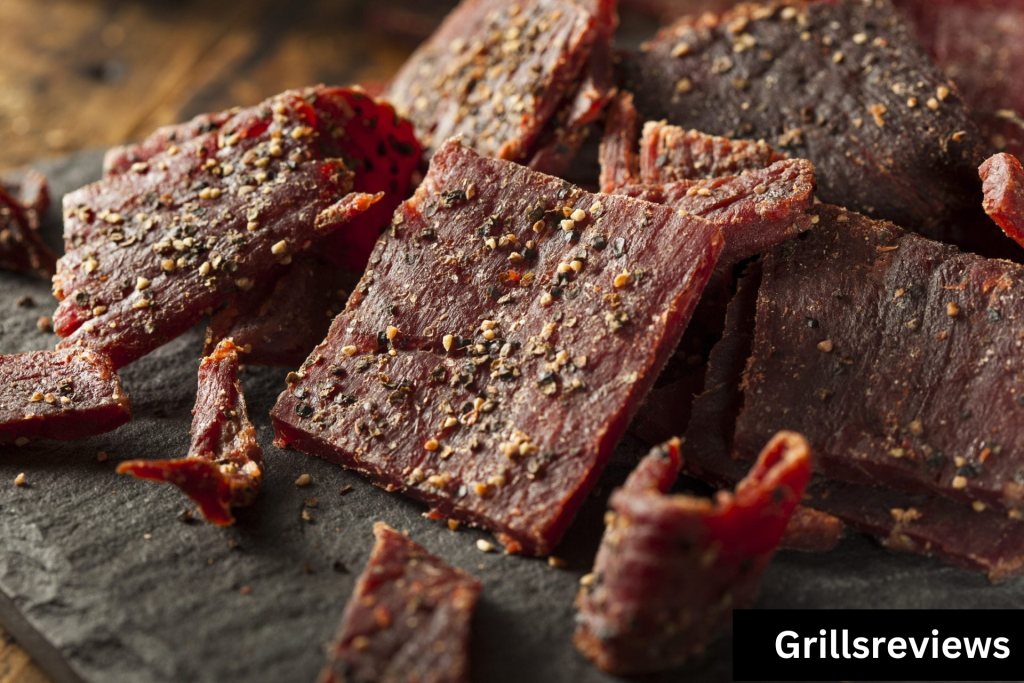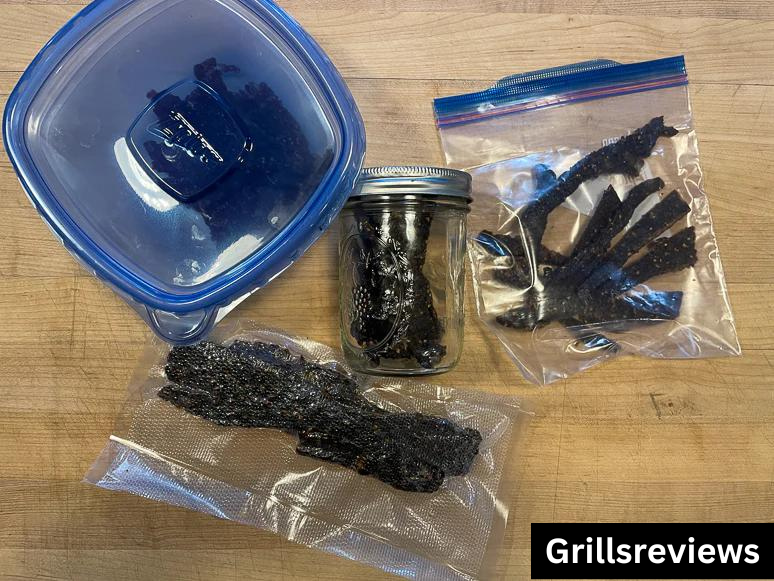How Long Does Beef Jerky Last? (Tips to Extend its Duration!)

One of the most popular and healthful snacks available today is beef jerky. It’s nutrient-dense, transportable, and simple to eat, making it the perfect snack for a variety of activities. However, you’ll want to know how long does beef jerky last before you buy any supplies.
How Long Does Beef Jerky Last?
Depending on whether it is handmade or store-bought and how it is preserved, beef jerky can last anywhere from a week to a year. Store-bought jerky may last for six months to a year if kept correctly. On the other hand, homemade jerky typically only lasts 1 to 2 weeks unless you apply specific preservation techniques.
Beef Jerky: Long-Lasting by Design
It is made to last, since beef jerky has been made for thousands of years with the sole goal of staying delectable and edible for extended periods of time. Jerking meat is a simple yet efficient method of meat preservation that dates back to prehistoric times.
Food that lasts a surprising amount of time is produced using only basic ingredients and a straightforward technique. The following are the most crucial elements:
Lean Meat: Leaner beef is used to produce jerky because it has less moisture and can be preserved more easily.
Natural Preservatives: Spices like celery juice powder and salt provide flavor.
Dehydration: Smoking and curing prevent degradation while producing a savory flavor by removing moisture.
Fortunately, a tasty meal that has endured the test of time is produced by a miraculous fusion of ingredients and conventional procedures.
Properly Storing Beef Jerky

You must concentrate on appropriate storage if you want your beef jerky to last as long as possible. The many techniques for keeping beef jerky are as follows:
Brown Paper Bag
Vacuum Sealed
Ziplock Bag
Jars / Dry cans
Brown Paper Bag
The beef jerky may be kept this way for about three weeks. The desiccant bags that come with the jerky should be kept inside the paper bag (or you may buy some for your homemade jerky), as this will prevent the jerky from getting overly wet.
Vacuum Sealed
Perhaps using a vacuum-sealed bag to store your beef jerky is the best option. Your jerky may stay reasonably supple and sensitive without going bad if you use vacuum-sealed bags to keep the air and moisture out.
We advise freezing the vacuum-sealed bag in order to extend the shelf life of your beef jerky. Your beef jerky can survive up to 12 months using this technique.
Ziplock Bag
In a pinch, you may also store beef jerky in zip-top or paper bags. If you want to eat the jerky soon, this technique is a wonderful choice because it will keep the food fresh for 3–4 weeks.
You may easily add a food-grade desiccant bag to the paper bag or Ziplock bag if you discover that your jerky is a little too wet.
Jars / Dry Cans
Mason jars are heated in the oven, food is put inside, the lid is closed, and the air forms a seal. This is the method of dry canning. Additionally, you may use this technique to keep homemade beef jerky in mason jars.
Homemade jerky may be preserved using dry canning for four months if kept in the refrigerator. The dry canning technique can preserve store-bought jerky for up to a year.
What Causes Bad Beef Jerky to Form?
Nothing, including beef jerky, lasts forever, despite having a long shelf life. Typically, there are two main factors that quicken degradation and ruin beef jerky. As follows:
Moisture: Moisture promotes the growth of bacteria, which can spread and make food unfit for consumption.
Oxygen: Oxygen has the ability to hasten chemical reactions in food. While there are many ways this might happen, oxygen promotes the growth of microbes.
In comparison to beef jerky that has been kept snug and sealed in a vacuum-sealed bag, beef jerky that has been exposed to either of these factors will decay significantly more quickly. Therefore, the secret to increasing the life of your jerky is careful storage.
How Can You Tell If Your Beef Jerky Is Bad?
Real beef jerky will all ultimately go bad, but knowing what to look for might be challenging. The easiest way to steer clear of a negative encounter is to keep a watchful eye out for frequent signs:
Check the package’s “Best By” date
Check the bag for any indications of wetness
Avoid jerky with an irregular shape or texture
Smell for any rotten, fermenting, or odd scents
Check for obvious mold indications
What Happens If You Consume Bad Beef Jerky?
If you consume beef jerky or any type of meat that has gone rotten, it will do serious damage to your health. Most likely, eating tainted beef jerky will result in food poisoning-like symptoms including stomach aches, cramps, fever, and sometimes even vomiting.
It’s better to toss out any beef jerky you detect to be of doubtful quality than to run the risk of being ill for 2–7 days. After consuming some suspect beef jerky, you should seek medical attention as soon as you begin to feel ill.
Do you need to refrigerate beef jerky?
It is not necessary to refrigerate beef jerky, although after the box has been opened, doing so will stop it from deteriorating.
Since refrigeration naturally slows the growth of microbes, it might be especially crucial for naturally preserved beef jerky manufactured without chemical preservatives. To prevent the formation of mold, however, make sure to keep your jerky dry while storing it in the fridge.
Bottom Line
There is no denying that beef jerky keeps for a very long time. To make sure it will survive without any issues, you must take a few important measures. When attempting to keep beef jerky fresh for more than a year, freezing is a realistic alternative. Beef jerky should only be frozen at room temperature in an insulated, airtight container.
Related Posts

How Long to Soak Wood Chips for Smoking

How to Cook Frozen Steak on the Grill (7-Steps)
